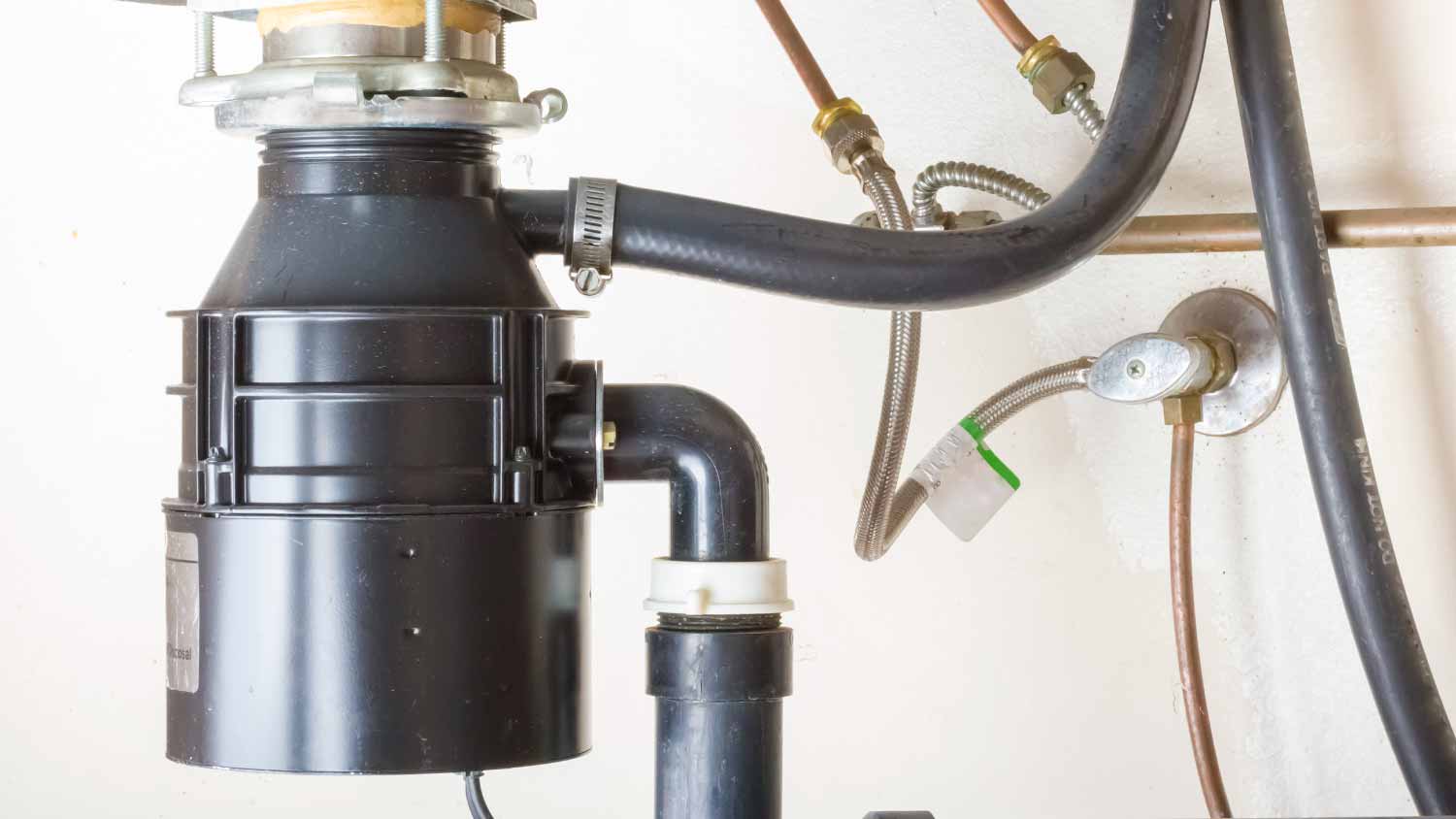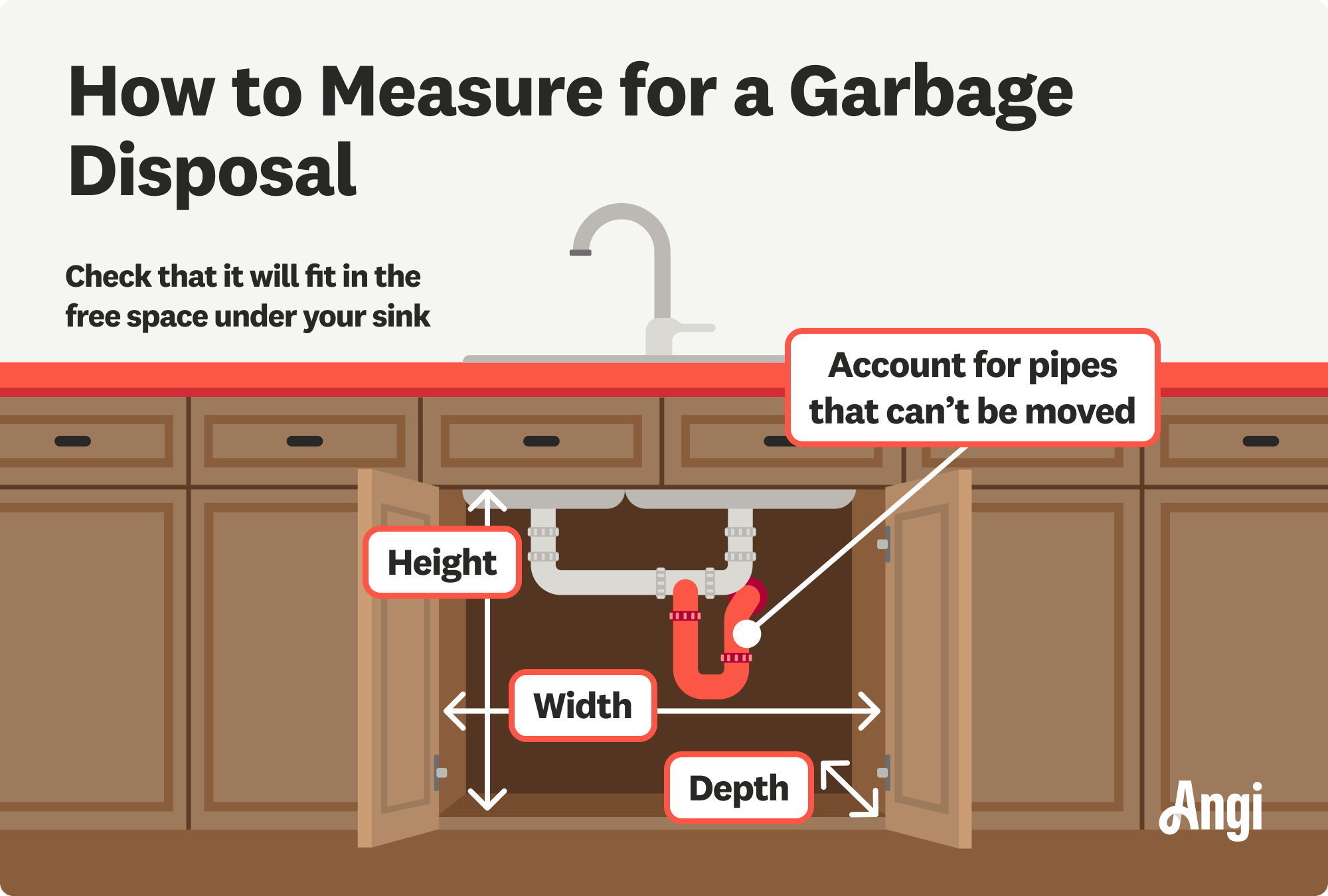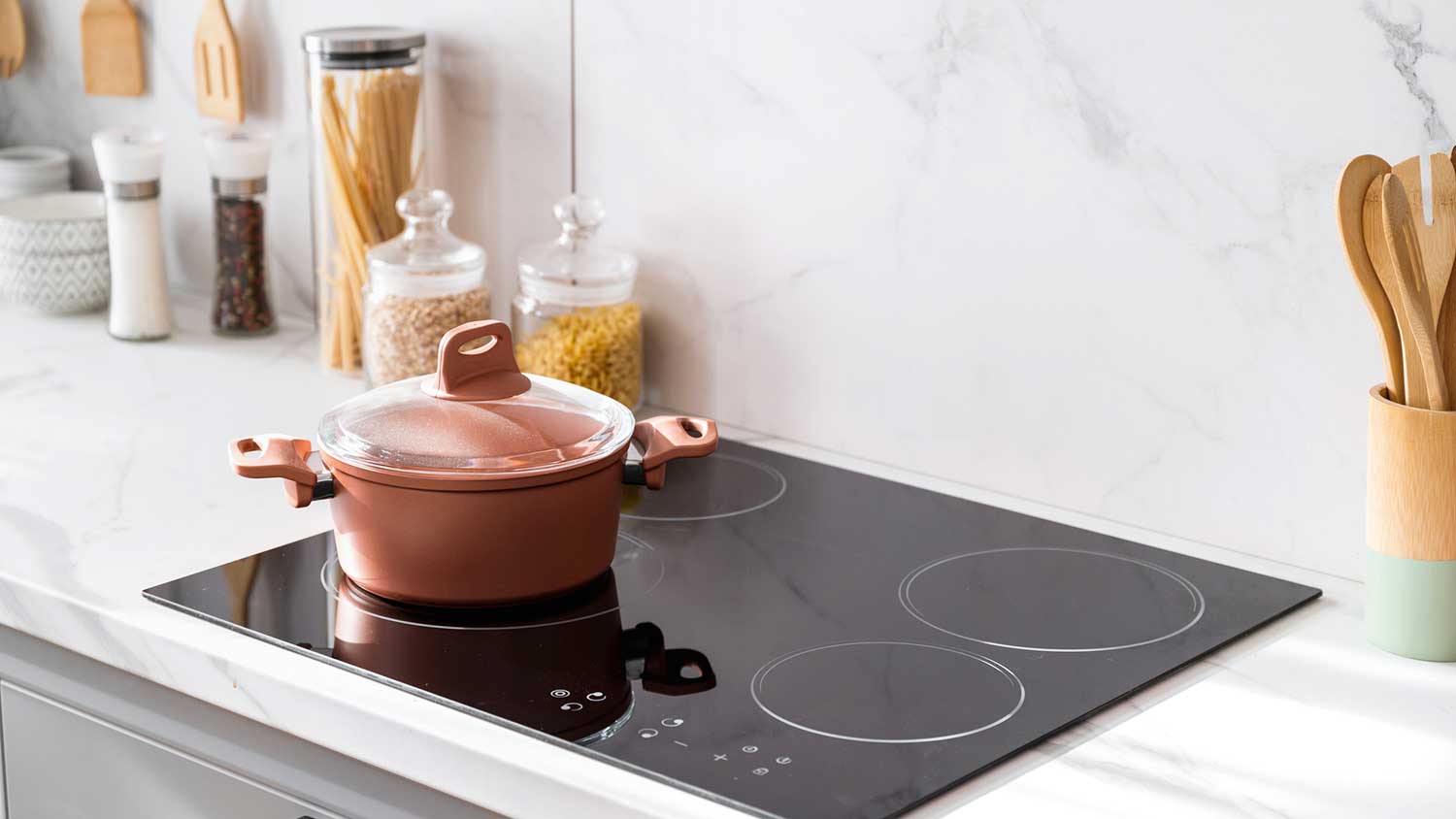
A wood stove can add warmth and ambiance to your home, but is it in your budget? Discover average wood-burning stove installation costs in this guide.
Our tips will help you get a perfect fit


Garbage disposals come in a range of sizes and power.
The right size for your home depends on several factors.
An underpowered garbage disposal won't be up to the job.
Your home's garbage disposal transforms food bits into a liquefied pulp that your local wastewater system can convert into biofuel. Pretty cool, right? But before you can use your food waste for good, you need to know what size garbage disposal you need. It all depends on your sink, your household, and your cooking habits.

You don't want a garbage disposal that's too weak and not up to the job of clearing away food from multiple daily meals. At the same time, you don't want to go too big and end up with a disposal that doesn't fit under the sink. When choosing the right disposal for your home, consider the following.
Your garbage disposal needs to fit into the cabinet under your sink. That means you need to know the dimensions of your sink and the cabinet. You must
Use a ruler or measuring tape to note the height, width, and depth of the sink cabinet. Then, note the location of the drain pipes, which you can't move. Your garbage disposal should fit into the free space beneath the sink.

Like car motors, the motor strength of a garbage disposal is measured in horsepower (HP). Garbage disposal ratings start at 1/3 HP and go up from there:
1/3 HP: The smallest size garbage disposal is ideal for a household with one or two people or with just a few meals prepped per week.
1/2 HP: If you live in a household of one or two and cook daily, a 1/2 HP disposal should be sufficient for your needs.
3/4 HP: Do you have kids and cook a few times a week? A 3/4 HP disposal should work for you.
1+ HP: The highest-powered garbage disposals, usually 1 or 1 1/4 HP, are perfectly suited for larger households with at least four people or those who cook every meal from scratch.
The chamber holds food waste. Food waste goes into a hopper from the sink, then into the upper chamber after the garbage disposal is switched on. It moves into the lower chamber to exit the sink system.
Typically, the higher-powered your garbage disposal, the larger the chamber size. But you should still confirm the unit will fit under your sink and to make sure it can hold an adequate amount of food.
Most drain pipes are a standard size, but if your home was custom-built, this feature may be something you need to consider.
In a typical kitchen, there are three commonly-used drain pipe sizes: 1 ¼ inches, 1 ½ inches, and 2 inches in diameter. Another common size is 3 inches, although this is seen more often in commercial settings and very large households.
If your home has a non-standard drain pipe size, this will factor into the size garbage disposal you need.
While your household size matters, you should also consider how often meals are cooked. If you mostly eat meals out, a smaller disposal should be sufficient. However, if you're living single and cooking every meal yourself, then you may be better off with a higher-powered, larger disposal.
From average costs to expert advice, get all the answers you need to get your job done.

A wood stove can add warmth and ambiance to your home, but is it in your budget? Discover average wood-burning stove installation costs in this guide.

Range hoods come in various styles and help keep your kitchen clear of odors, smoke, and grease. Here’s how much it costs to install a range hood by type.

Discover the average cooktop installation cost, key price factors, and tips to save. Learn what impacts your total cost and how to budget for your new cooktop.

Calibrating your oven is usually a simple task you can do in less than an hour. Read here to learn how, no matter what type of oven you have.

Looking to extend the life and increase the efficiency of your dishwasher? Learn how to clean a dishwasher drain to enjoy a clean, dry load every time.

It may seem like there are a zillion types of wood stoves—but there are really two main categories (and other decisions to make from there). Learn more here.